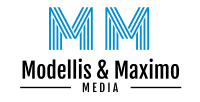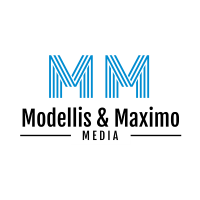What Are Healthcare Laws?
Health law is a field of study that encompasses various types of government regulations and laws relating to the health industry. This includes federal, state, local rules and regulations, and jurisprudence concerning the health industry’s operations and regulatory issues. The healthcare industry is an enormous and complex field, and laws relating to it are crucial to maintaining high quality and safety standards. In addition, healthcare laws provided in Sidley.com protect consumers by protecting them from fraudulent health insurance claims and other forms of misinformation.
HIPAA
The U.S. Department of Health and Human Services has promulgated six sets of “rules” relating to health information. These rules, which are codified in 45 CFR Parts 160, 162, and 164, include provisions related to preventing medical liability and healthcare fraud. Other laws relating to the healthcare industry include the Affordable Care Act. This law covers health insurance and related tax provisions. If you or your organization is planning to implement new electronic healthcare systems, you will need to comply with HIPAA and healthcare laws.
Health organizations must abide by the HIPAA Privacy and Security Acts to protect patient information. The HIPAA Security Rule requires all health care organizations to implement physical, administrative, and technical safeguards to protect electronic health information. Additionally, HIPAA requires organizations to track breaches and implement measures to prevent them. Further, breaches of HIPAA and healthcare laws may result in significant fines and even the failure of a medical organization. Ultimately, avoiding HIPAA violations and ensuring your organization complies with these laws can save your business from bankruptcy.
HITECH
The HITECH healthcare laws strengthen the privacy and security of patient information. Under previous rules, breach notifications are required when the covered entity knows there is a potential for harm. Now, breach notifications must be made to all affected parties, HHS, and the media if unsecured PHI is breached. Under HITECH, the law extends these notification requirements to business partners, including billing companies, consultants, and IT technicians.
The HITECH Act sets forth new rules regarding how information obtained by health care providers can be used for payment and treatment purposes. While previous rules only apply to information used for payment and treatment, the HITECH Act extends those rules to information used for both of these purposes. The new accounting requirements are effective for organizations that implemented their EHR systems during 2009-2011. If organizations implemented EHRs before then, the new requirements will take effect in January 2013.
PIPEDA
PIPEDA and healthcare laws protect the privacy of personal health information. Under the act, an individual can ask for access to, or corrections of, their personal health information. They also have the right to complain when they believe an organization is not protecting their personal information. PIPEDA applies to both healthcare and federally regulated industries. However, some organizations are exempted from the legislation. These organizations must still adhere to PIPEDA and privacy laws in order to protect their patients’ personal health information.
PIPEDA and healthcare laws protect the privacy of individuals across Canada. It applies to healthcare providers, as well as all businesses and institutions that deal with personal health information. Covered entities are non-profit organizations and government agencies that have jurisdiction over certain areas. For example, while HIPAA covers healthcare providers, PIPEDA covers a much wider range of organizations. Custodians can include doctors, nurses, hospitals, mental health programs, and the Ministry of Health.
Anti-Kickback law
There are numerous penalties associated with violations of the Anti-Kickback law in the healthcare industry. The Federal Anti-Kickback Statute prohibits the giving, receiving, and transferring of value to obtain, retain, or promote certain health care services. While the statute originally required specific knowledge and intent to commit a violation, a recent amendment has eliminated these requirements. These penalties, along with other sanctions, can range from criminal fines of up to $25,000 per violation to disbarment from federal healthcare programs.
Medical kickbacks can take many forms. The first is when a healthcare provider gives a patient a material benefit in exchange for making a referral to a health care provider. These kickbacks may include cash, travel, or payments for services. These payments are illegal and can cause a patient to receive medically unnecessary or ineffective treatments. It is also illegal for a medical provider to offer patients a financial inducement without their consent.
Coronavirus pandemic
The United States has experienced five waves of the Coronavirus pandemic since 2020, and three of these were driven by new variants. The first wave of the pandemic involved COVID-19 in early Spring 2021, and in the Summer, the Delta variant emerged, twice as contagious as the original strain. By Fall, the Delta variant had spread throughout the South and Midwest and finally reached the Rocky Mountain region.
Regulatory compliance
The regulatory burden of healthcare compliance has become an ever-increasing problem. Several organizations, including hospitals and medical groups, spend upwards of $39 billion every year on compliance. This includes nearly 600 requirements. Regulatory requirements in healthcare vary widely, and they affect occupational sectors such as nursing, pharmacy, and radiology. Healthcare organizations are responsible for complying with these requirements, but what makes them so important? What can be done to help reduce administrative burdens and improve healthcare quality?
In order to remain in business, organizations must adhere to the newest healthcare laws and regulations. Failure to do so can result in lawsuits, fines, or even loss of contracting with insurance providers. Furthermore, organizations may lose their reputation, as many patients will be wary of non-compliant facilities. Such reputational damage can take years to repair. Moreover, healthcare organizations can lose their medical licenses if they fail to comply with government regulations.









